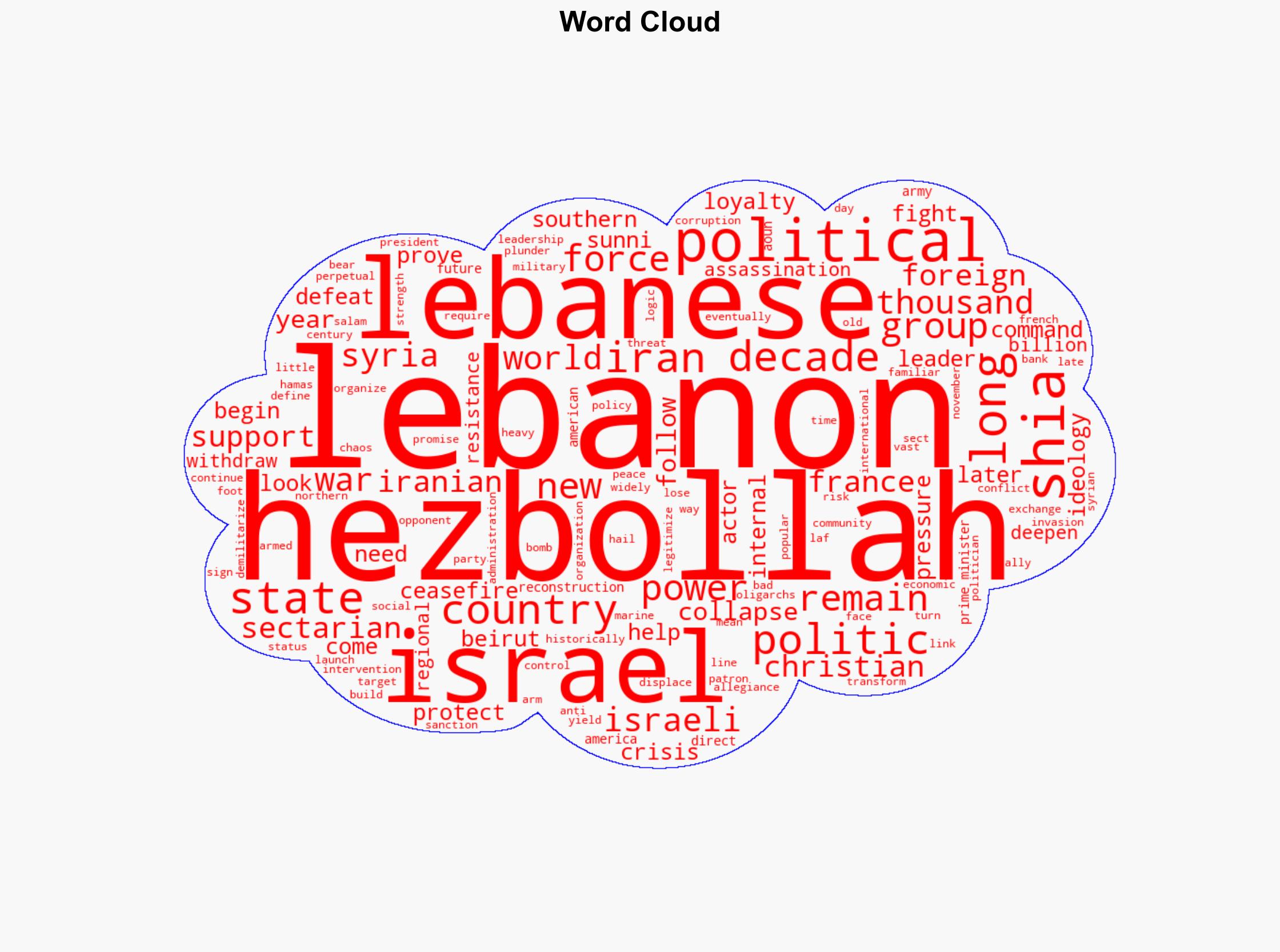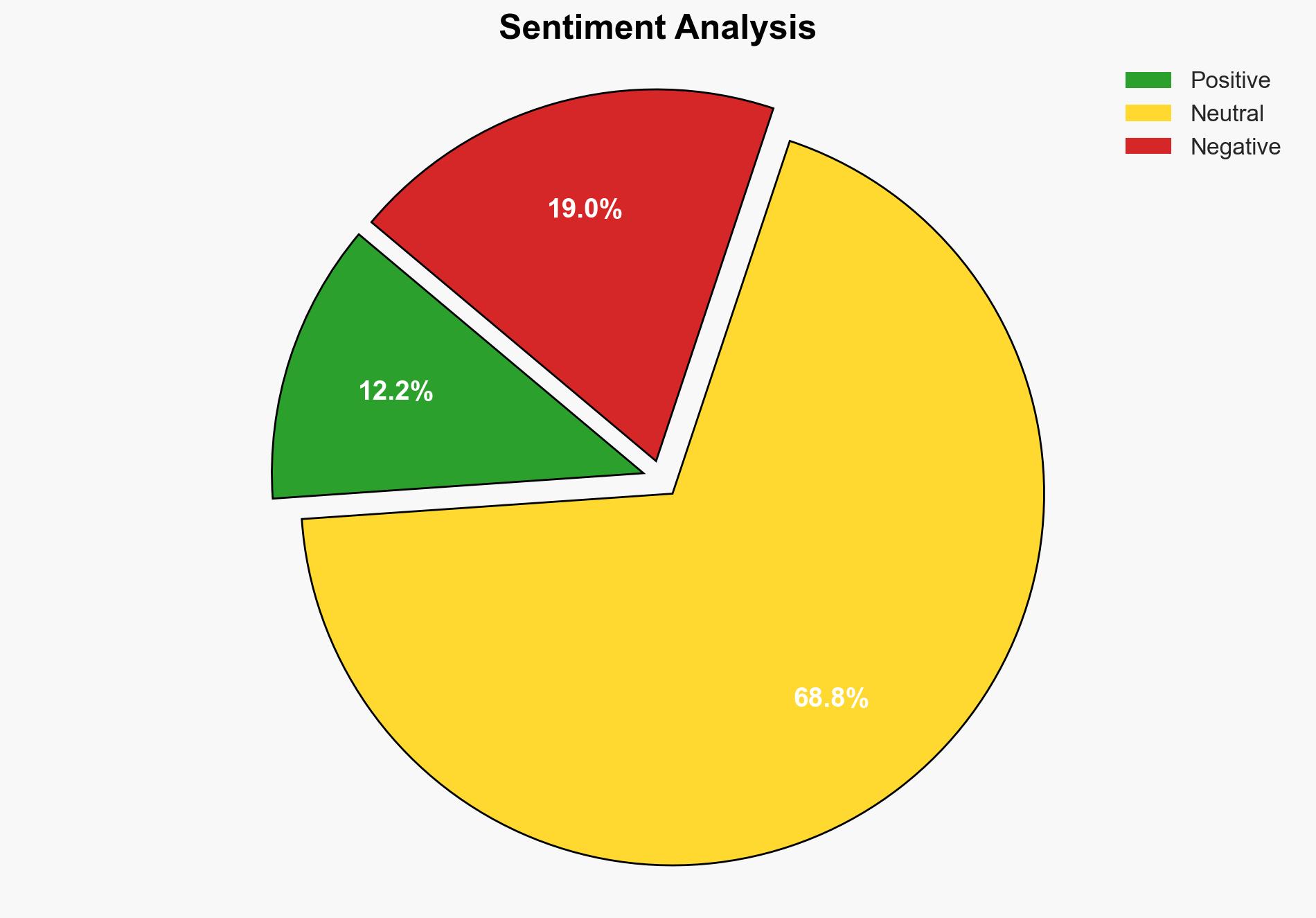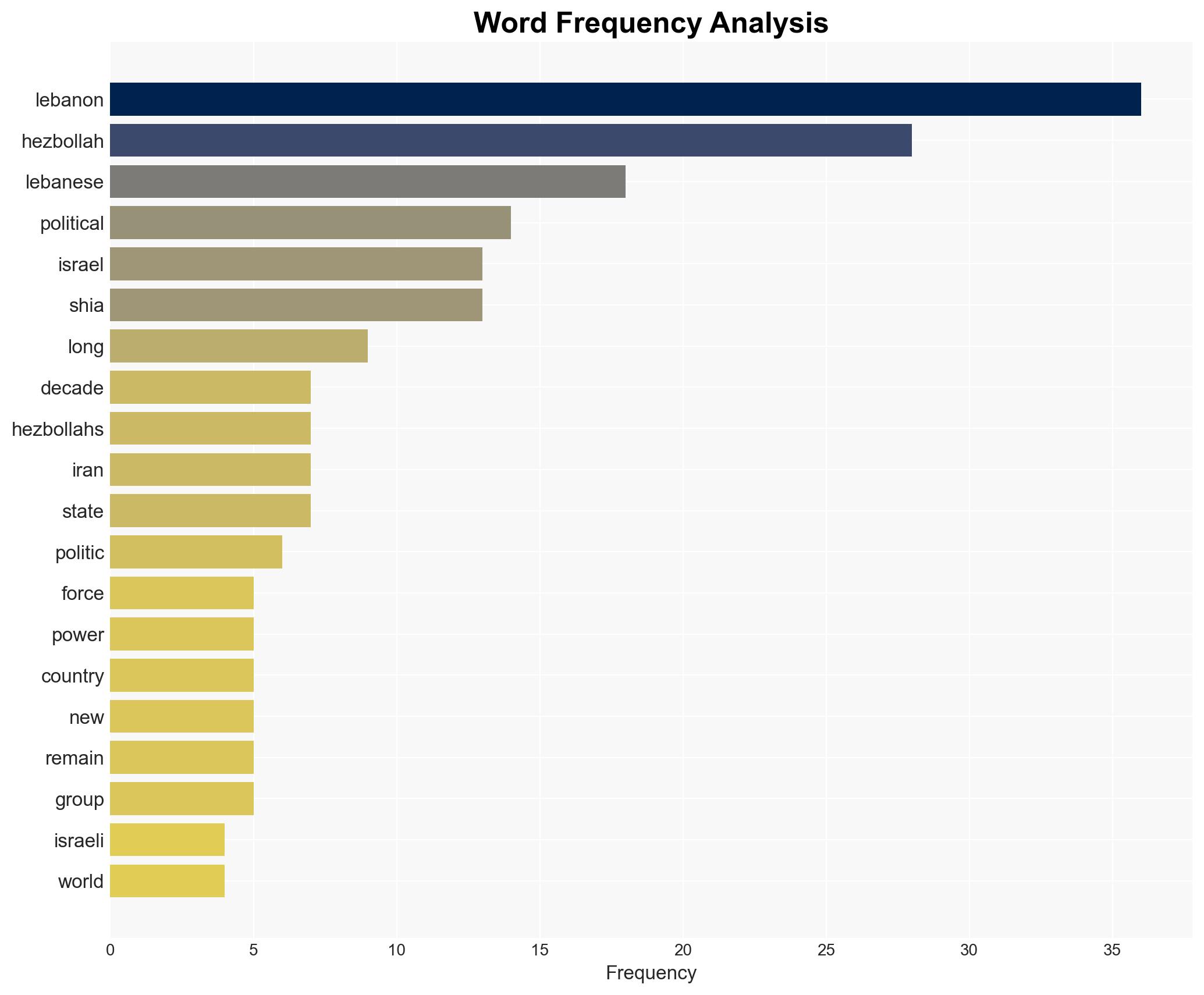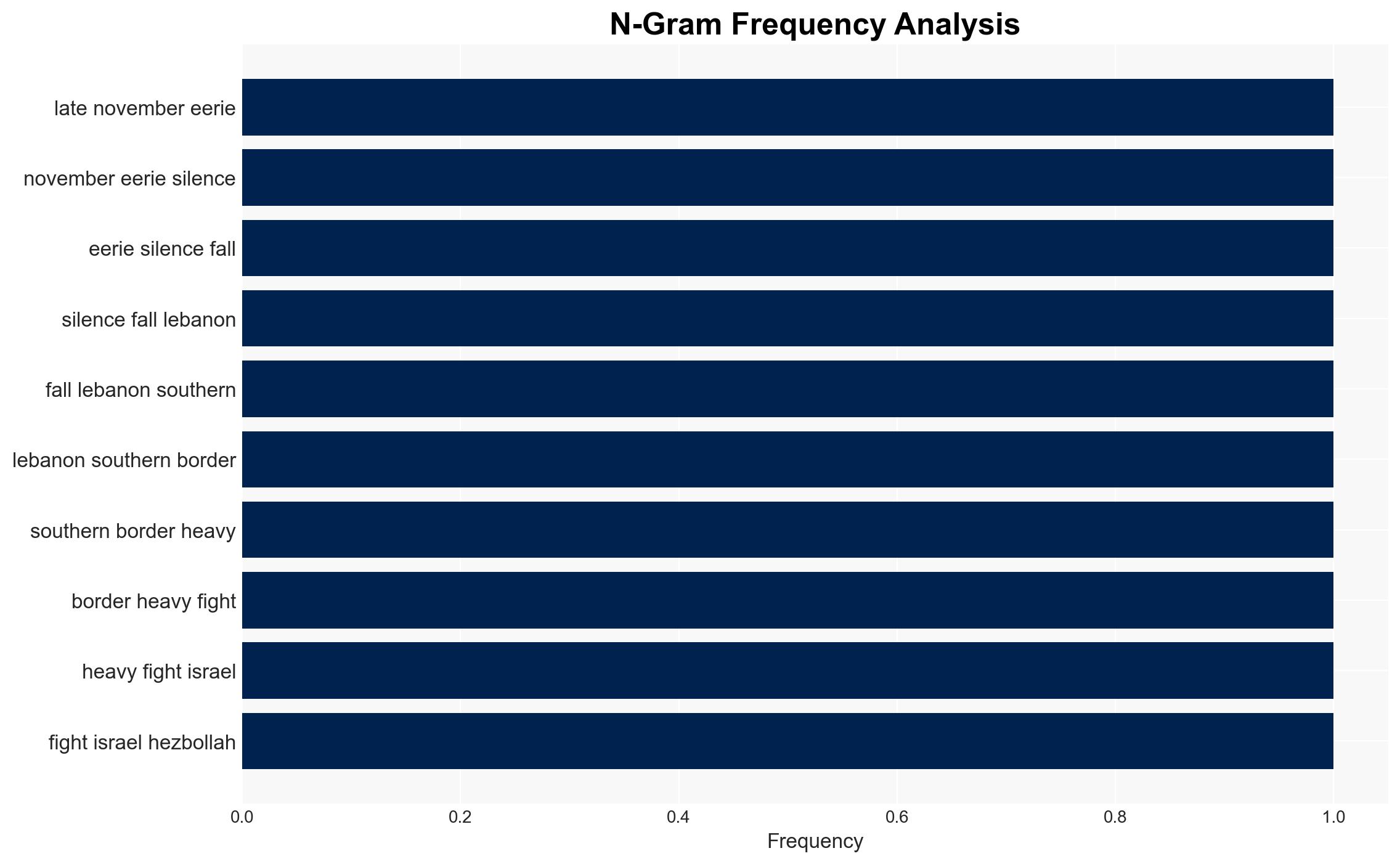Lebanons Precarious Future – Washington Monthly
Published on: 2025-04-08
Intelligence Report: Lebanon’s Precarious Future – Washington Monthly
1. BLUF (Bottom Line Up Front)
Lebanon is at a critical juncture following recent conflicts involving Israel and Hezbollah. The country’s political and military landscape has been significantly altered, with Hezbollah’s influence waning due to military setbacks and the collapse of its regional allies. Lebanon faces a choice between reclaiming sovereignty with a pluralistic political system or descending into further chaos and fragmentation. Immediate strategic actions are necessary to stabilize the region and support Lebanon’s transition.
2. Detailed Analysis
The following structured analytic techniques have been applied for this analysis:
General Analysis
Recent military engagements have left Hezbollah weakened, both in terms of manpower and psychological influence. The loss of thousands of fighters and the destruction of its leadership structure have diminished its standing as a formidable military force. The collapse of the Assad regime in Syria, a crucial ally, further destabilizes the region. Lebanon’s political future is uncertain as sectarian divisions continue to influence political allegiances, with historical ties to foreign powers complicating the internal balance of power.
3. Implications and Strategic Risks
The primary risks include a potential power vacuum leading to increased sectarian violence and the possibility of foreign intervention. The economic implications are severe, with instability deterring investment and exacerbating the humanitarian crisis. Regional stability is threatened as neighboring countries may become involved, either through direct intervention or by supporting proxy groups. National security concerns are heightened due to the potential for spillover conflicts affecting broader Middle Eastern geopolitics.
4. Recommendations and Outlook
Recommendations:
- Support diplomatic efforts to facilitate a peaceful political transition in Lebanon, emphasizing inclusive governance.
- Enhance regional cooperation to prevent external interference and support Lebanon’s sovereignty.
- Invest in economic aid and development programs to stabilize Lebanon’s economy and address humanitarian needs.
Outlook:
Best-case scenario: Lebanon successfully transitions to a stable, pluralistic political system with reduced sectarian tensions and improved economic conditions.
Worst-case scenario: Lebanon descends into further chaos, with increased sectarian violence and foreign intervention exacerbating the humanitarian crisis.
Most likely outcome: Continued instability with periodic flare-ups of violence, requiring ongoing international engagement and support.
5. Key Individuals and Entities
The report mentions significant individuals and organizations, including Hassan Nasrallah, Antonio Gramsci, and Hezbollah. These entities play crucial roles in the current geopolitical dynamics of Lebanon.





